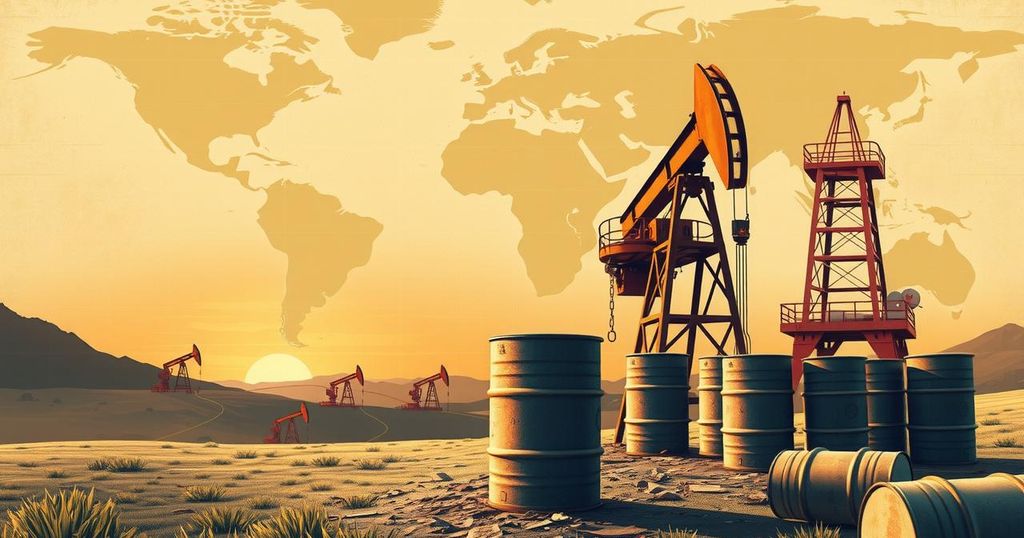Trump to Impose Tariffs on Countries Purchasing Venezuelan Oil, Impacting Global Trade
President Donald Trump has announced a 25 percent tariff on imports from countries buying Venezuelan oil and gas. This decision, impacting nations like China and India, is set to take effect on April 2 and arises from Trump’s intent to confront trade practices deemed unfair. While broader tariffs are planned, potential for a more targeted approach has emerged as discussions continue within the administration.
On Monday, President Donald Trump announced the implementation of significant tariffs on imports from nations purchasing oil and gas from Venezuela. This measure, aimed at curbing economic exchanges with Venezuela, may adversely impact countries like China and India, contributing to uncertainty in global trade relations. The new tariffs, set at a substantial 25 percent, are scheduled to take effect on April 2, a date Trump has referred to as “Liberation Day” for the United States.
Since re-entering the presidency in January, President Trump has adopted a confrontational trade stance, imposing tariffs on both allies and adversaries. He justified these secondary tariffs concerning Venezuela by accusing the country of hosting criminals who threaten the United States. Trump emphasized that Venezuela’s actions have been antagonistic towards American values and freedoms.
Historically, under previous sanctions, Venezuela managed to reroute its oil exports to major economies, including China and India. However, Trump’s recent declaration coincides with complications regarding the deportation of Venezuelan migrants from the U.S., an agreement that had previously been suspended by Caracas. It was reported that an arrangement has since been achieved to resume repatriations, leading to the deportation of Venezuelan nationals from the United States.
Furthermore, Trump’s planned tariffs are expected to extend beyond Venezuela, possibly affecting imports in the automotive and pharmaceutical sectors, among others. The White House has suggested that the tariffs, initially positioned as sweeping, might evolve to be more targeted, with specific countries facing more significant burdens.
An official from the White House noted that decisions regarding sector-specific tariffs remain fluid, indicating that while reciprocal tariffs are assured, the extent and implementation date may vary. This potential refocusing of tariffs has sparked optimism in the financial markets. Treasury Secretary Scott Bessent warned that the U.S. would address trade disparities with approximately 15 percent of partner countries, referred to colloquially as the “dirty 15.”
President Trump’s announcement of tariffs on nations purchasing Venezuelan oil signifies an escalation in trade tensions, particularly affecting key partners such as China and India. The tariffs are designed to address perceived economic injustices and bolster U.S. national security. As the administration considers the extent and specificity of these tariffs, the overall impact on global trade dynamics remains to be seen, with particular focus on potential sector-specific measures and the responses from affected countries.
Original Source: www.hindustantimes.com




Post Comment